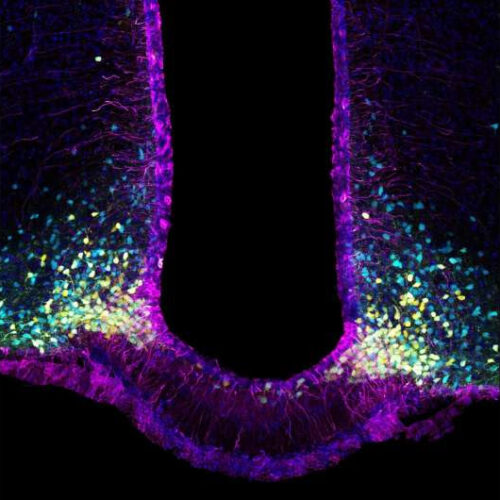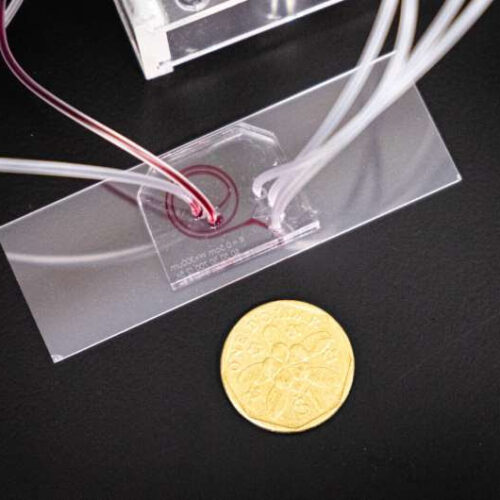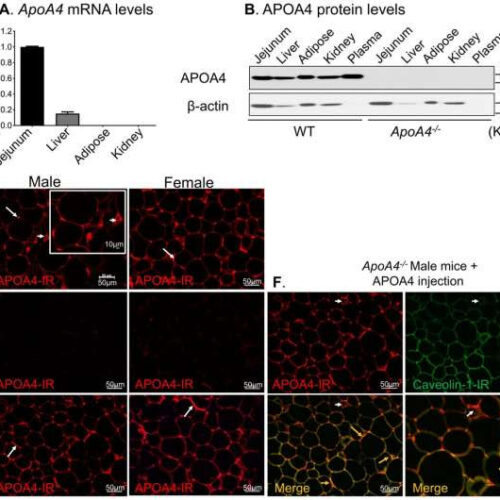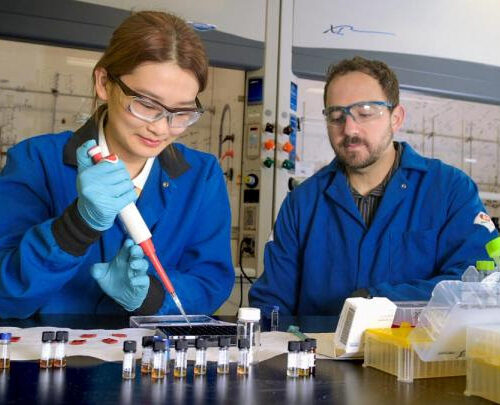by Institut National de la Sante et de la Recherche Medicale In purple, the tanycytes that form the brain’s cellular gateway to the hormone leptin; in yellow, the appetite-inducing neurons and, in blue, the appetite-suppressing neurons. Leptin targets both neuron types, inhibiting the former and using its appetite-suppressant signal to activate the latter. Credit: Inserm/Vincent Prévot...
Category: <span>Diabetes</span>
Assessing risk of vascular inflammation for diabetes patients – biomed tech
by Nanyang Technological University A close-up of the lab-on-a-chip prototype (compared to an SGD $1 coin) developed by the NTU Singapore, Tan Tock Seng Hospital, and MIT, which can extract extracellular vesicles (EVs) in a one-stop process. The amount of EVs can indicate if a diabetes patient is having vascular inflammation. Credit: Nanyang Technological University A...
Receptor protein in adipose tissue plays a role in controlling blood sugar levels
by Cedric Ricks, University of Cincinnati APOA4 is transcribed and translated primarily in the gut and transported to adipose tissue via circulation. (A) APOA4 gene was expressed in mouse jejunum and liver tissues, but not in gonadal adipose tissue and kidney. RT-PCR for ApoA4 and β-actin was performed on total mRNA isolated from jejunum, liver, gonadal...
A coming wave of diabetes? The link with COVID-19
by Alice McCarthy, Children’s Hospital Boston Credit: Unsplash/CC0 Public Domain Researchers are observing a new long-term health concern in patients hospitalized with COVID-19—an increase in new-onset hyperglycemia lasting months after infection. An Italian study found that about half of the patients admitted to the hospital for COVID-19 during the start of the pandemic had new cases...
Largest-ever type 1 diabetes genetic study IDs potential treatment targets
UNIVERSITY OF VIRGINIA HEALTH SYSTEM IMAGE: “THIS WORK REPRESENTS THE LARGEST, MOST ANCESTY-DIVERSE STUDY OF TYPE 1 DIABETES THAT IDENTIFIES THE MOST LIKELY CAUSAL GENETIC VARIANTS ASSOCIATED WITH RISK, THEIR TARGET GENES AND THOSE GENES THAT ARE IMPLICATED IN OTHER AUTOIMMUNE DISEASES WITH KNOWN DRUG TARGETS,” SAID RESEARCHER STEPHEN S. RICH, PH.D., OF THE UNIVERSITY...
Researchers develop novel method for glucagon delivery
UNIVERSITY OF NOTRE DAME IMAGE: SIHAN YU AND MATTHEW WEBBER CREDIT: UNIVERSITY OF NOTRE DAME For children with Type 1 diabetes, the risk of experiencing a severe hypoglycemic episode is especially common — and for parents, the threat of that happening in the middle of the night is especially frightening. Sudden and critical drops in...
Chinese health insurance achieves success decreasing diabetes medication usage, costs
AMERICAN ACADEMY OF FAMILY PHYSICIANS Approximately 642 million people are expected to be diagnosed with diabetes by 2040, with Asians representing more than 55% of cases. Researchers conducted the first large-scale study since the implementation of medical insurance in China to evaluate the complexity and cost of drug therapy for Asian people with diabetes. They...
High blood sugar levels ‘reprogram’ stem cells
by University of Oxford Credit: Unsplash/CC0 Public Domain High levels of glucose in the blood “reprogrames” stem cells, leading to a lasting increase in the risk of developing dangerous atherosclerosis, according to research funded by the British Heart Foundation published today in Circulation. University of Oxford researchers found that high blood glucose, a hallmark of diabetes, alters stem cells...
Early blood-sugar levels in type 2 diabetes crucial for future prognosis
by University of Gothenburg Credit: CC0 Public Domain People who get type 2 diabetes need to gain control of their blood sugar levels—fast. The years immediately after diagnosis are strikingly critical in terms of their future risk for heart attacks and death. This is shown by a joint study from the Universities of Gothenburg and Oxford....
Rare genetic variants confer largest increase in type 2 diabetes risk seen to date
by University of Cambridge Credit: CC0 Public Domain Scientists at the University of Cambridge have identified rare genetic variants—carried by one in 3,000 people—that have a larger impact on the risk of developing type 2 diabetes than any previously identified genetic effect. Type 2 diabetes is thought to be driven in part by inherited genetic factors,...









